Identify Point A on the wave: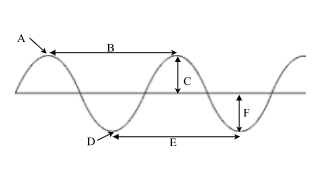
What is the crest?
The type of wave illustrated below:
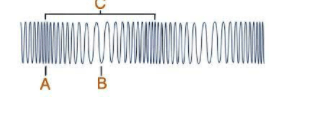
What is a longitudinal wave?
Waves that require a medium to travel.
What are mechanical waves.
Identify the waves with the greater frequency:

What is a?
Identify Point D on the Wave:
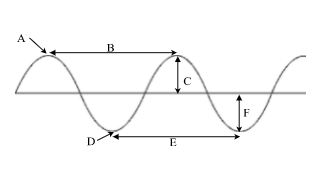
What is the trough?
Identify A on the wave below:
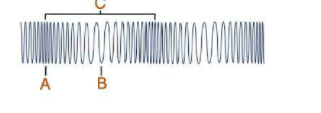
What is compression?
Waves that can travel through a vacuum.
What are electromagnetic waves.
Identify the waves with the greater amplitude below:

What is b?
Identify the measurement of B and E?
What is wavelength?
Identify B below on the wave:
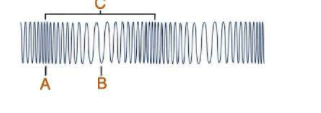
What is rarefaction?
A wave is a transfer of _________.
What is energy?
Calculate the frequency of the longitudinal wave below:
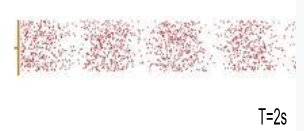
What is 2 Hertz?
Identify the measurement of C and F: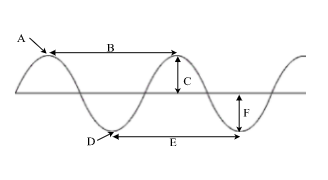
What is amplitude?
Identify measurement C on the wave below:
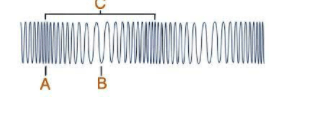
What is wavelength?
Identify the only electromagnetic waves below:
Seismic waves, microwaves, water waves
What are microwaves?
Calculate the frequency of the transverse wave below:

What is 4 Hertz?
Identify the type of wave pictured below:
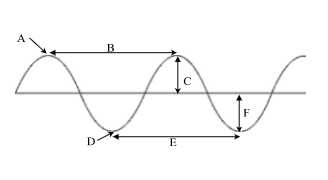
What is a transverse wave?
Category of wave for sound.
What is longitudinal?
Identify the only mechanical wave below:
Radio Waves, X-Rays or Sound Waves
What are sound waves?
Frequency of waves is measured in units called _______.
What is Hertz?